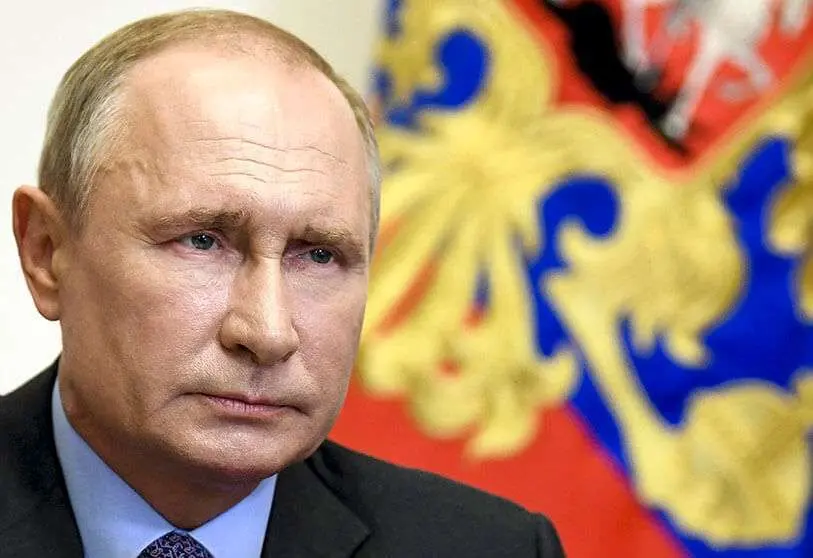Putin opponents: democracy frustrated

The chancelleries of Western countries have long looked at Russia with suspicion. Suspicions about its interference in political and social processes in Europe and America are well-founded, and in some cases have gone beyond mere conjecture. And the situation is repeating itself now that we are all suffering from the weaknesses that the global pandemic has caused, and some powers are taking advantage of this to undermine the credibility and normal functioning of their potential rivals. The declarations to El País by the Norwegian Jens Stoltenberg, Secretary General of NATO, put the focus on Russia and China with their accusations to allied countries about the origin of the virus. It is curious how the accusations against China for having created the pathogen in a laboratory, even truffled bulls for alienation to those who threw them, have been outraged, and yet no one has repaired, much less shown the same indignation for China's accusations to everyone else. Cyberspace and social networks are being used, Stoltenberg says, to spread false accusations by taking advantage of the global crisis, with the guard down and the health and military resources pending the security breach caused by the massive contagion.
While all this was going on on the planet, Russia is going on with its half-baked democracy underpinned by Vladimir Putin's regime. The plebiscite on constitutional reform to make the country a semi-Bolivarian model has gained the support of almost 80% of voters, although many of those who had the right to vote have protested by not participating in the endorsement of "Putin Forever". A few weeks after securing support for a mandate until 2036, Putin has seen the streets revolt against him despite the repression of dissent, and this very week we have seen that many Russians do not take communion with the cooked dishes that the president serves for their forced digestion. Pushkin Square has been the scene of protest with hundreds of people demanding real democracy for one of the world's leading countries, and above all an end to the persecution of opponents, the policy that Putin has been pursuing for many years, in which even journalists are persecuted for their reports critical of the Kremlin. These are today the platforms and the people who lead the timid and difficult movements in opposition to the president.
Libertarian Party. Founded in 2007, it defends a liberalism in tune with Adam Smith's postulates. It is a kind of mote on Putin's shoulder: it is not even legally registered, and if it were it would not have much chance of getting its message across. To fight democratically because the state has a residual role in the country where the state has been omnipresent is a difficult struggle in unequal conditions. Shortly before the outbreak of the coronavirus, libertarians participated in an event to protest the lack of freedom on the Internet. Mikhail Svetov, their most recognizable face, saw days later how the police searched his apartment and seized the web server.
“Vesna" (Spring) movement. It functions as a non-governmental organization and defends the independence of Ukraine from the "great Russia" that President Putin is proposing. In 2015, a few days before a protest called by Vesna in Moscow against the military intervention in Ukraine, the liberal politician Boris Nemtsov was shot and killed while walking near the Kremlin with his partner.
Open Russia. The foundation of the former oil magnate Mikhail Khodorkovsky, a fierce opponent of the government and the president, of the Russian system in short, whose antagonism to the leader is known worldwide. He has promoted the "Niet" movement. Khodorkovsky spent ten years in prison for economic crimes.
Alexei Navalny. He is Putin's main critic today. He created the Anti-Corruption Foundation and was a candidate for Moscow Mayor. He has used the spring that the government most rejects, the Internet, to spread his messages and his opposition work (he has more than two million followers in networks). The European Union and the United States considered the sentence that sentenced him to prison in 2013 as a policy.
Maria Aliojina. Anti-Putin activist and member of the Pussy Riot group, is another prominent opponent who has savored life in prison for her ideas. She spent almost two years in prison for performing in front of the Cathedral of Christ the Saviour in Moscow and digesting her songs against Putin. She makes efforts with her platform Sona Prawa to denounce the situation of prisoners in Russia and the lack of transparency "in the prison camps".
Andrei Pivovarov. Leader of "Niet", he was arrested in 2015 during an election campaign. He was one of the voices leading the protest this week against constitutional reform and will be presenting the signatures collected at Russia's Supreme Court.
Sergei Furgal. The Governor of Khabarovsk, whom Putin rightly resents, has been accused of murder for events that took place 15 years ago, and was imprisoned a week ago. His popularity is on the rise in his region and this is seen by Moscow as a threat.
Rapper Face. Ivan Dryomin is one of the participants in the protests and a voice that is difficult to silence for Putin as Russian youth consider him a musical hero and reference. They even proposed him to work for the Kremlin, with his refusal.

